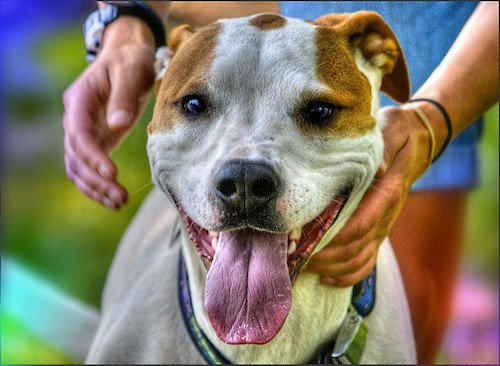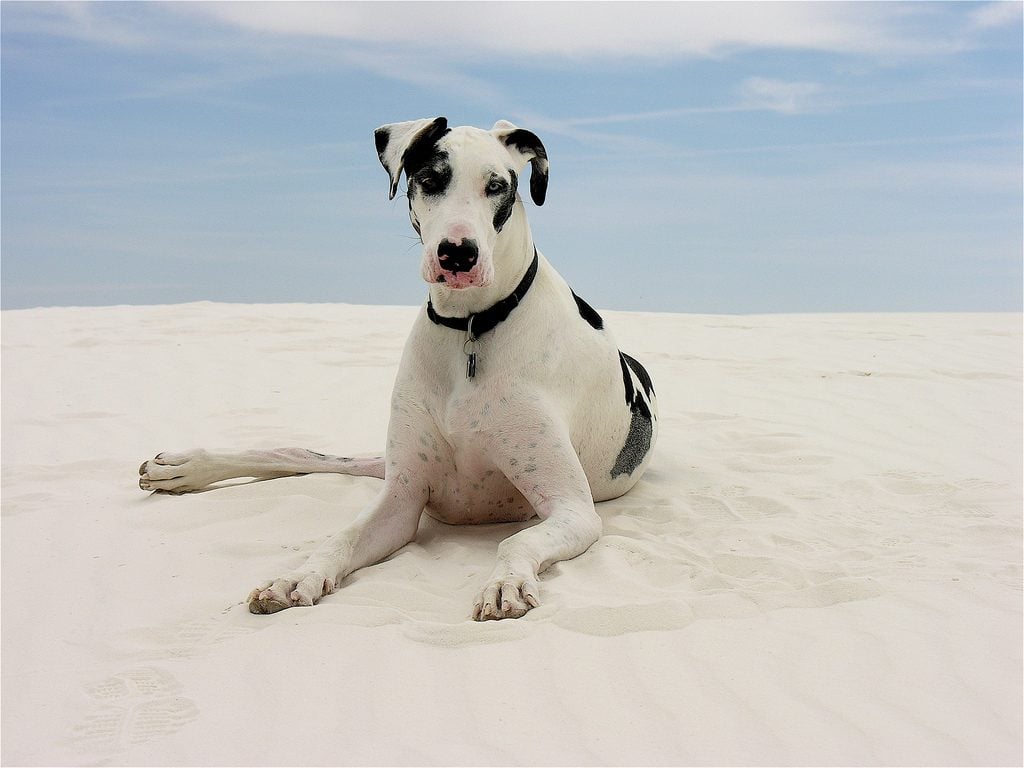- Not a substitute for professional veterinary help.
As a species, dogs are less plagued by heart disease than humans, whose lifestyle choices can contribute to the development of heart problems. But some dogs do develop congestive heart failure, a progressive decline in the heart’s ability to pump blood to the rest of the body. Injury and infection, or congenital heart defects, can initiate canine heart disease too. Finally, it can develop as a result of wear and tear of the organ as a dog grows older. We’ve rounded up the most common symptoms of heart disease in dogs to look out for.
Large breeds are more susceptible to a condition in which the heart becomes in enlarged, stressed, and ultimately fails. These include: Doberman Pinschers, Boxers, Great Danes, Irish Wolfhounds.
Smaller and toy breeds, such as Cavalier King Charles Spaniels and Dachshunds, are more susceptible to defects or diseases affecting the heart valves.
Here are a few signs of heart disease in dog you should be aware of.
Some of these can also indicate other illnesses, such as cancer, but a discerning dog owner who knows what to look for can pick up on the symptoms and seek veterinary help sooner rather than later.
Shortness of Breath

FLICKR / @SWONG95765
This is perhaps the most prominent sign of heart disease in dogs. As the heart loses its strength—and its ability to pump fresh blood to other parts of the body—the lungs kick into higher gear, seeking more fresh oxygen to enrich the bloodstream.
If you notice your dog panting at unusual times—when he should not be overheated, when he has not exerted himself, or when he’s sleeping or resting—this can be cause for concern.
Loss of Appetite

FLICKR / @ZACK McCARTHY
Like other symptoms, this one could be the result of various health changes, but if you notice your dog has lost interest in food, and she exhibits other symptoms on this list, heart disease could be the culprit.
If the problem persists, definitely check with your vet.
Weight Loss or Weight Gain
Depending on the nature of the heart problem, weight loss or gain can result from heart disease. Noticeable, sudden weight loss can be the result of the diminished appetite mentioned above.
With weight gain, you’re looking for bloating or a distended, swollen belly, rather than usual chubbiness. This is caused by the buildup of fluid in the abdomen when blood flow has been blocked as a result of poor circulation.
Fatigue

FLICKR / @ROB SIMMONDS
Similar to the effects experienced in the lungs, an inefficient or struggling heart will have trouble delivering oxygen and other nutrients to the rest of the body, creating an overall effect of exhaustion and fatigue.
If you notice your dog is more difficult to motivate and she struggles to find the energy for things she used to love, a heart problem could be to blame. Of course, older dogs are generally less energetic, so this can be tough to gauge. But if you notice your dog has a hard time making it through just a fraction of his daily walk, or if you see this symptom with some of the others listed, definitely keep a watchful eye.
Changes in Behaviour

FLICKR / @COFFEE106
Dogs suffering from heart disease may behave differently in several ways. They may isolate themselves, appear depressed, or seem uninterested in things that previously excited them. Or they may exhibit a general sense of discomfort or restlessness.
Fainting Spells
If your dog collapses or faints suddenly, seek veterinary help immediately. This can tends point to several serious health issues, heart disease among them. But it demands quick attention and response.
Coughing

FLICKR / @ANTIRRHINUM
Coughing can signal a variety of diseases, but a minor cough should disappear after about three days. If you notice your dog coughing, particularly after exercise, or if you notice a cough that worsens at night, heart disease may be the culprit.
The Bottom Line
While some forms of heart disease have a genetic origin, other forms develop as the heart loses strength with age. Your vet will check for heart disease with each annual check-up, listening for changes in the sound of the heart beat.
Treatment for the disease is more effective when the condition is detected early, which is why it’s so important to stay on schedule with yearly exams. Early treatment can both prolong your dog’s life and increase his quality of life as well.
Ask your vet about preventative measures, which include a wholesome diet and age-apropriate exercise. Some dog owners swear by canine cardiac health supplements; consult your vet if you think they could be a fit for your dog.



